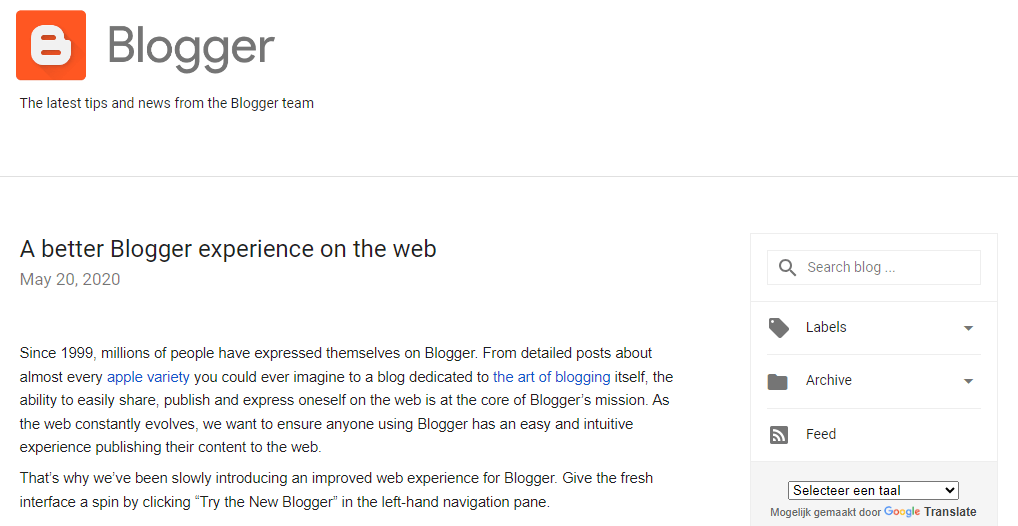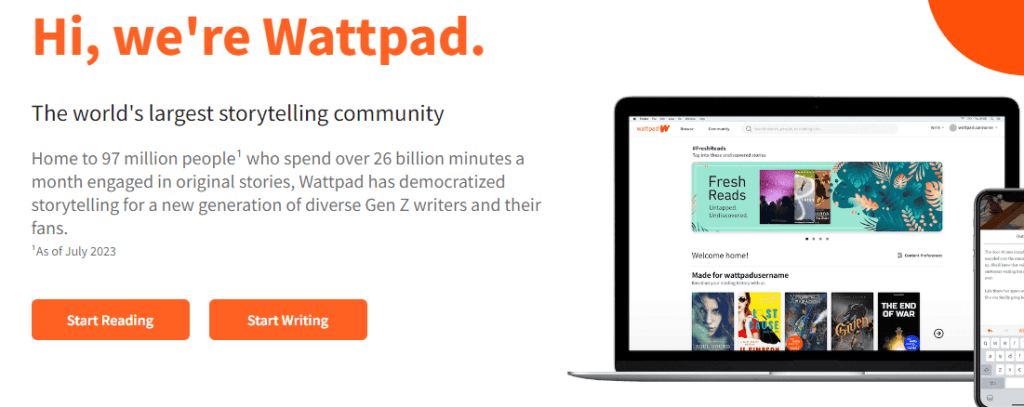Please Follow us on social media >>>>
Where and how to publish content without owning a website

Many people shy away from writing and publishing content online because they need their website.
But that is not true.
The truth is, to become a content writer, you don’t need expensive websites, developers, or even designers.
You don’t even need to pay for hosting services before you can become a website owner.
With a little research, you can be on your way to making your website without hiring an expert. And if you are serious about the website, you can make some side income with it.
I will advise you to read through and use any or a combination of the following solutions to get started.
Then, when you have tested the waters with free website creation and found what works, you go pro by having a custom website for your brand or business.
If you are ready, let’s explore your options.
Publish your first content online with Telegra.ph:
Telegram’s blogging platform allows for fast publishing and anonymous posting.
Users are not required to register an account or sign in through social media. It’s similar to Medium and supports easy embeds.
The first time I came across, Telegraph, I was surprised and maybe a bit shocked too. Go see what it is like to write on Telegraph.
Come back and thank me.
Write.as
Read Write.as is a minimalist, distraction-free platform for writers who want to publish content without hassle. You can write anonymously or set up a profile to create various types of content.
Write.as emphasizes privacy and accessibility.
Medium: If you’re looking for a free blogging platform, Medium is an excellent option. It allows you to share your thoughts, stories, and expertise with a wide audience.
Tumblr: Tumblr serves as both a blogging platform and a social networking site. You can create and share content without needing a separate website. And what is more? You will meet people with similar interest as you.
LinkedIn Publishing:
What type of people use LinkedIn? Simply put, they are thought leaders, business experts, professionals, and people like you.
Yes, ordinary people use this great platform, and believe me, you are bound to meet great people on LinkedIn if you play by the rules.
I have been writing and publishing on LinkedIn for as long as the platform exist.
I have also done social media management for several clients, and I tell you, the return on investment with LinkedIn is immense.
LinkedIn is a great platform for professionals to build their personal brand and grow an audience. You can publish articles directly on LinkedIn to showcase your expertise.
Few articles I have written on LinkedIn:
8 ways to get content ideas without using AI.
Free Proposal Templates
Best Tools for Freelancers
After checking our LinkedIn, if you think you still need something with more control, then you are not alone.
As great as LinkedIn is, it has its limitations too. For example:
- Character limit (LinkedIn allows you to write articles of up to 125,000 characters.)
- Limited customization
- Algorithm-based visibility
- Potential for spam or low-quality content
- Lack of full ownership over content
So, having said the above, I present you with other great options below.
Write for free on WordPress.com:
While WordPress.org requires hosting, WordPress.com offers a free hosted version. You can create and publish content without managing a separate website.
I started my journey on wordpress.com, and the site still drives traffic today even though I no longer maintain it.
Thank you for reading this far. But if you still need more places to publish without owning a website, please read on.
You can also check out Google’s free website solution.
No need for a website to publish on Blogger:
Blogger (also known as Blogspot) is a straightforward blogging platform by Google. You can create and publish content without the need for a separate website.
Blogger is a free platform and is accessible to anyone who wants to start a blog without investing in a website.
There are a few things I love about Blogger that you cannot get anywhere else with a free content publishing solution.
- Ease of use: The platform offers a user-friendly interface, making it easy for beginners to create and publish content.
- Customization: While not as extensive as custom website builders, Blogger provides various customization options to personalize your blog’s appearance.
- SEO: Blogger integrates with Google Search Console, allowing you to optimize your blog posts for search engines.
- Community: Blogger has a large community of users who can provide support, feedback, and inspiration.
- Integration: Blogger integrates with other Google products like Google Analytics, allowing you to track your blog’s performance.
- Limitations: Blogger’s customization options may be limited compared to custom website builders, and you may have less control over your blog’s design and functionality.


Substack:
If you are looking for an easy way to publish your content today and not tomorrow, you should go to Substack’s website
I always refer to Substack as the new kid in the block, but it came with good stuff.
But don’t take my word for it. Go ahead and check Substack out yourself and you will not regret it.
Substack is popular among newsletter creators. It allows you to write and distribute newsletters to subscribers without setting up a separate blog.
But make sure you are focused on building a good lead and capturing emails. You know: the money is on the list.
Dev. to
If you are a developer and has a thing or two for writing, I advice you go check out Dev,to.
You may not have heard of it, but Dev.to is a community for developers. You can write technical articles, share your coding experiences, and engage with other developers.
I will share some of the pros and cons of Dev.to
Pros of Dev. to for writing great content
- Developer-focused: Dev.to is a platform specifically designed for developers, offering a community and audience interested in tech content.
- Simple and clean interface: Publishing on dev.to is easy, with a clean interface and focus on content creation.
- Strong community: Dev.to fosters a strong developer community, allowing for interaction, discussions, and networking.
- Emphasis on content: Dev.to prioritizes well-written and informative articles, potentially attracting a higher quality audience.
- SEO benefits: Content on dev.to can rank well in search engines, increasing discoverability.
- Version control: Dev.to offers version control features for your posts, allowing easy revisions.
Cons of Dev.to for publishing content
- Limited customization: Customization options are limited compared to self-hosted blogs, offering less control over design.
- Focus on technical content: While allowing some non-technical content, the platform is best suited for tech-related topics.
- Potential for lower discoverability: For non-technical content, reaching a wider audience might be more challenging compared to general blogging platforms.
- Content moderation: As with any platform, there can be concerns about content moderation and potential removal of posts.
- Reliance on dev.to: You don’t own the platform and are reliant on their service and potential future changes.
Publish on Wattpad:


Wattpad is a platform for writers and readers. You can publish stories, poems, and novels, gaining exposure to a large audience.
In addition to your chance to write on Wattpad, there are also tons of resources to get you started. I particularly enjoyed their input when dealing with writers block.



[…] Understand these platforms provide various features and cater to different needs, so choose the one that aligns best with your goals! And if you need something with more features go check this out: Where and How to Publish Content Without Owning a Website […]